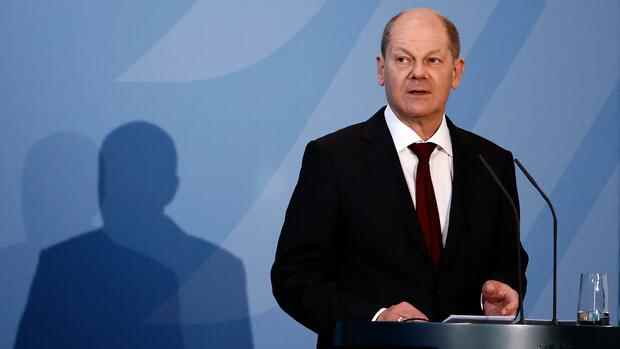The Chancellor is not known for big speeches. But right now, speeches like this are needed to keep society together.
(Photo: dpa)
Olaf Scholz spoke of a “turning point” – for a Chancellor who has made sobriety his trademark, it was almost a rhetorical eruption. Since then, however, the chancellor has put the citizens back on an emotional dried fruit diet – even though the war in Ukraine is delivering images of apocalyptic proportions day after day. And although the consequences of the Russian invasion have long since been felt everywhere in this country: energy price shock, inflation rate in March at 7.3 percent, possible gas rationing for the economy.
So the “turning point” is here. But where is the Chancellor’s big “blood, sweat and tears” speech that does justice to this new situation? Where is the call that every person, every company should save every kilowatt hour in order to at least make it more difficult for Putin to go to war?
What about a car-free Sunday, or at least a temporary speed limit for peace? Finally, where is the admission that his party, that the federal governments, at least since Schröder and Merkel, have made the mistake of tying the country’s energetic fate to a man who has never made a secret of his imperial ambitions? And that right now, because of these mistakes, it is important to stand together.
Such speeches are the glue that can hold together societies that are confronted with borderline experiences. But Scholz prefers to use his freely available emotion budget for a slanted general attack on the economists who honestly, if sometimes somewhat awkwardly, try to model the consequences of an energy boycott.
Top jobs of the day
Find the best jobs now and
be notified by email.
Instead of empathetically but truly swearing in the citizens to what may come next, the chancellor is trying to pacify them with billions in state compensation, which he is distributing in a watering can throughout the country.
More: “How could you be so naive?” – This is how the world thinks about Germany’s energy disaster
